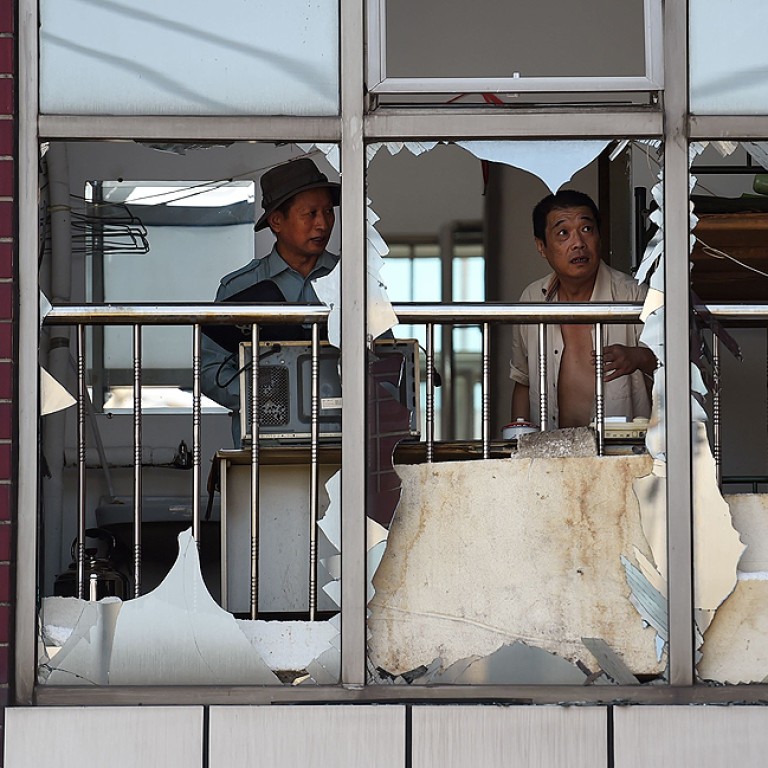
Tianjin residents kept in the dark about fatal blasts, Hong Kong witness says
A Hongkonger who lives just 3km from the site of the massive chemical explosions in Tianjin saw the blasts from her window late on Wednesday night.
The woman, surnamed Ho, might have had a front-row seat to the fatal industrial accident, but she, like other residents of the port city, was kept in the dark because of a dearth of reliable information from the authorities.
Calling in to a Hong Kong radio show yesterday, Ho recalled the night's happenings and the cloak of mystery surrounding the dual blasts that have killed scores of people.
She was about to go to bed at around 11.30pm, she said, when she felt the first tremor. Thirty seconds later, she heard the second blast and felt the floor beneath her shake even more.
"From my window, I saw an explosion with fire lighting up the sky and felt an air current rushing towards the window," she said.
"I had turned on the air conditioner and so the windows were closed, but I could still feel this burst of air trying to push in."
Ho has been living in Tianjin for four years as her husband is working at a new development area near the harbour.
With scant news available, she turned to personal connections, such as friends who had relatives working in the fire department.
She also relied on WhatsApp messages from friends back in Hong Kong.
"My friends told me about the water pollution and sent me photos," she said.
"Luckily, I also knew friends working in the government who were able to get me non-official news about what was really going on - and it matched what was being reported in Hong Kong."
Information released by the municipal government was limited and very unreliable, she said.
"The government's news cannot be fully trusted. What we need is someone to honestly do a professional assessment of the situation."
Ho had initially thought the first blast was some kind of gas explosion, maybe from a kitchen.
"The neighbours were quite nice," she said. "They were banging on the door and shouting, 'Is there anyone inside? Let's go; we have to run'."
They got dressed and, armed with wet towels, went down the stairs. Lots of people were already on the street. Plenty of shattered glass was lying around, but no one knew what was happening.
While her building was not so badly affected, Ho later heard that all the windows from the eighth floor down were completely shattered in the adjacent block.
The fact that she was living so close to a hazardous-goods warehouse had previously eluded her. "I didn't know at all," she said.
Now she knew - because a friend had moved into a new residential block that was just 1km from the blast site. The place was badly damaged, she added.
Despite their proximity to ground zero, Ho's husband had to go back to work.
She had thought of volunteering at the site, but heard the government was not admitting any more volunteers because it was very chaotic there.
"We also learned there was a serious manpower shortage at the hospitals," she said.
That night, Ho returned home after the police came over and assured them it was safe. But her friend was not so lucky.
"Those living in that neighbourhood had to clear out. Some stayed at hotels and some slept on the streets."
Still, Ho left her home after learning from insiders that two gas containers - or four, according to other sources - had yet to detonate. Many of her friends had also gone away, she added.
"I'm also thinking of returning to Hong Kong," she said.
